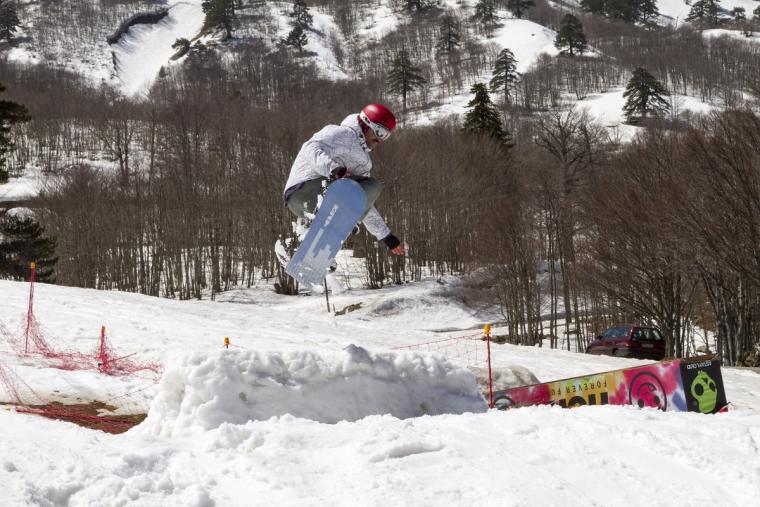
In February, the Chicago-based National Brotherhood of Skiers celebrated 50 years of bolstering the sport among Blacks.
“We have prevailed as a prevailed as a premier Black snowsports organization with a community-driven mission that has survived the test of time,” NBS President Henry Rivers III proclaimed in the nonprofit organization’s “50th Anniversary Digital Journal.”
Indeed, with a mission “to identify, develop and support athletes of color who will win international and Olympic winter sports competitions representing the United States and to increase participation in winter sports,” NBS now boasts 5,000 members in 55 clubs and hosts its annual Black Summit in Colorado.
As an article posted on the website for Teton Research Group, producer of ski, snowboard and surf films, notes, “NBS founders Ben Finley and Art Clay initiated the inaugural event in 1973 at Ajax Mountain in Aspen. … By Thanksgiving later that year, the national organization was officially formed with its initial goal of helping support a black skier on the U.S. Ski Team. Since then, the NBS has helped produce several Olympic skiers and today a few of its athletes are training for the next winter Olympics in 2026. Plus every year thousands of young black skiers go skiing for the first time, which is made possible through the help of their local clubs and ski resorts.”
About 2,000 people attended this year’s week-long Black Summit in Vail, Colo., in February, which organizers dubbed “Soul on Snow.”
 “We started off with 500 in Aspen,” Maynard Welch, an 87-year-old Korean War veteran and NBS member who has attended every Black Summit since the beginning, told The Denver Post. “The next year, we had 3,000. We’ve been up as high as 9,000. We have done a lot of great things for Black.”
“We started off with 500 in Aspen,” Maynard Welch, an 87-year-old Korean War veteran and NBS member who has attended every Black Summit since the beginning, told The Denver Post. “The next year, we had 3,000. We’ve been up as high as 9,000. We have done a lot of great things for Black.”
Most of this year’s Black Summit events took place at The Hythe Vail. Admittedly, NBS struggled with management at the ski lodge during the early years.
“Back then, our membership just did not feel welcome,” Rivers told ESSENCE.com, adding that he shared his concerns with the lodge’s leadership. “They immediately recognized and listened to my concerns around the issues with inclusivity value, and I think that feedback, moved mountains.”
Despite its tremendous gains over the past half-century, NBS still has some mountains to move.
According to the National Ski Areas Association, 88.7% of skiers at resorts as of October 2022 were white. Black skiers comprised just 1.5%, behind Asian or Pacific Islander (5.7%) and Latino (5.5%) skiers.
The beginnings of the modern ski industry “can be traced to veterans from the Army’s storied 10th Mountain Division, who put their elite training to use as they founded more than 60 resorts after World War II,” noted the American Heart Association News in a January article touting skiing’s benefits. “In the segregated Army of that era, though, most Black soldiers had been restricted to service jobs.”
“So you’ve got history where the people most involved were often white,” Adrienne Saia Isaac, director of marketing and communications for the Lakewood, Colorado-based NSAA, told the American Heart Association News. “[But] that’s not a valid reason for why skiing remains as predominantly white as it does.”
Rivers added that “resorts don’t market to people of color” and that Black skiers are rarely featured in ski publications. “We’ve been talking to many of those publications, letting them know that they’re not representative of people of color.”
Rivers’s own journey in the sport began when he was 10 years old and found a pair of old skis in his family’s hotel attic. He was the only person of color on his high school ski team, and family ski trips to the mountains now are a tradition for Rivers, his wife and their triplets, according to SkiUtah.com. He became president of NBS in early 2020.
“I’ve told everyone this in the industry: It is a long process that we’re going to have to focus on, but we have to do it,” he told ESSENCE.com, referring to the challenges NBS still faces. “Being out in that snow changed my life, you know? A kid from New York City that had never seen a mountain in my life. Every Black child deserves the opportunity to experience [that]. Every single one of them.”

